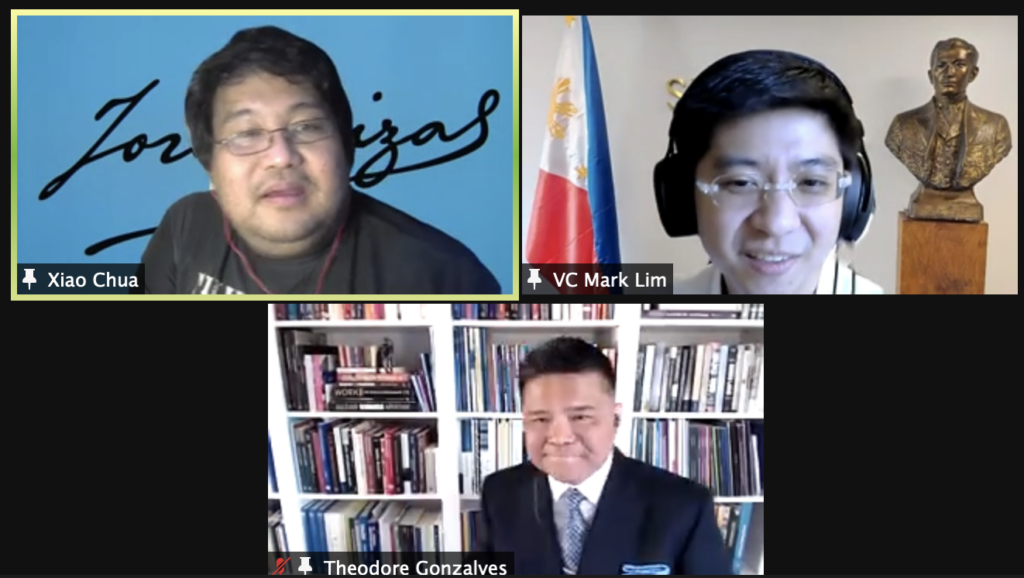WASHINGTON, D.C. – “In light of the many challenges that we have been facing this past year, the arduous path to rebuilding and recovery, and the rise in racially motivated hate incidents here in the United States, tonight’s event looks back and delves into these issues through the eyes of our national hero,” said Philippine Ambassador to the United States Jose Manuel G. Romualdez in his opening message in the webinar, “Jose Rizal: Lockdown & Humanity held via Zoom and Facebook Live on 24 June 2021.
The webinar, which was held in celebration of Sentro Rizal Washington DC’s 3rd Anniversary and Dr. Jose Rizal’s 160th Birth Anniversary, featured public historian and professor Xiao Chua and Smithsonian Asian Pacific American Center interim director Dr. Theodore Gonzalves.
Both speakers talked about various aspects of Rizal’s life including on how he became a doctor, the work that he did in his Dapitan “lockdown”, and his experience as an Asian who visited the United States in the late 1800s.
“Today we are in so much barriers because of the pandemic, but the time of Rizal is also a time of barriers – barriers of race, culture, greed, there’s so much oppression around – and these barriers he tried to break down. I guess that is the meaning of Rizal’s life now, how do we break down these barriers,” said Prof. Xiao Chua in his presentation.
“Rizal (in Dapitan) gave us progressive education, social entrepreneurship, and community development… Dapitan is arguably the most important part of Rizal’s life. It is where Jose Rizal applied his concept of the nation,” he further added.
Dr. Theodore Gonzalves, in his presentation, talked about Rizal’s visit to the United States in 1888 where he likewise experienced quarantine due to restrictive immigration policies being implemented during that time. He said that “what Rizal stepped into were historical waves that were long in the making. On the one hand, there was the promise of capital… on the other hand there was the peril of exclusion, removal, and violence.”
“We might as well be sitting next to him at the same crossroads in our time. Aren’t we also witnessing the same contradictions in this day that he saw 133 years ago? What would he say in the disproportionate death toll faced by Filipino medical workers working on the pandemic’s frontlines, how would he approach the expression of our common humanity as a fortunate few begin to emerge from our lockdowns into uncertain futures,” he concluded.
The two speakers likewise fielded various questions during the discussion including on how Rizal is seen in the United States and how he should be presented overseas; what views he may have on present health issues such as COVID-19 vaccine hesitancy and the rise in racially motived hate crimes in the US; and how the Filipino American community can live out to Rizal’s examples today.
“Jose Rizal: Lockdown & Humanity” is available for streaming on the official Facebook page of the Philippine Embassy in Washington, D.C. ###

